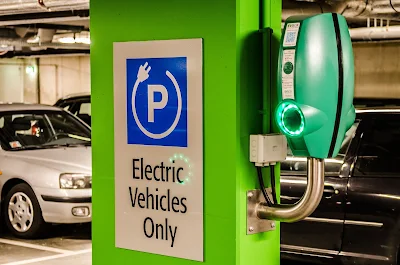Unveiling
the Reality: Do Electric Vehicles Emit 1,850 Times More Particulate Matter than
Petrol and Diesel Cars?
The increased awareness
of environmental issues in recent years has led to a notable transition away
from traditional gasoline and diesel cars and toward electric vehicles (EVs).
But a recent, ground-breaking analysis by Emission Analytics casts doubt on the
conventional wisdom that electric vehicles are inherently better for the
environment. The study suggests that, in contrast to gas-powered vehicles,
electric vehicles may emit a startling 1,850 times higher amount of particulate
matter from their brakes and tires.
The
Weight Dilemma: Unraveling the Impact of Heavier Batteries
One striking revelation
from the study is the substantial weight difference between electric vehicle
batteries and traditional petrol engines. EVs, such as the Tesla Model Y and
the Ford F-150 Lightning, boast batteries weighing around 1,800 pounds. This
difference in weight not only changes the way the car moves but also puts more
strain on the brake and tire systems, accelerating their deterioration.
Accelerating
Wear and Tear: The Hidden Consequence of Heavier Batteries
The extra weight of
electric car batteries places an unparalleled strain on the brake and tire
systems. As a result, these essential components deteriorate more quickly,
releasing toxic compounds into the atmosphere. According to the Emission
Analytics analysis, the exhaust emissions from a contemporary gasoline
automobile could be 400 times higher than the tyre wear emissions from an electric
vehicle with a half-ton battery.
Synthetic
Rubber and Environmental Impact: A Tiresome Predicament
The majority of tires,
which are an essential component of any car, are made of synthetic rubber that
is made from crude oil. The Emission Analytics report emphasizes that EVs'
higher weight increases the rate at which hazardous substances are released
into the atmosphere in addition to hastening tyre wear. This raises serious
concerns about the environment and calls into doubt the overall environmental
friendliness of electric vehicles.
Beyond
Emissions: A Call for Holistic Environmental Consideration
Although electric cars
are frequently praised for emitting fewer greenhouse gases when in use, the
Emission Analytics analysis calls for a more thorough analysis. It forces us to
examine every aspect of the life cycle of electric cars, including the
manufacture process, the environmental effects of battery generation, and now
the emissions from neglected tyre and brake degradation.
Uber's
Electric Vision: A Glimpse into the Future of Ride-Hailing
Simultaneously, Uber,
the largest ride-hailing service, has set a lofty target of having all of its
rides in US, Canadian, and European cities be electric by 2030. Although
praiseworthy, this dedication calls into question the viability of such goals
in light of the issues brought to light by the Emission Analytics report.
In conclusion, the
findings of the Emission Analytics study pose a serious threat to the common
wisdom regarding the environmental superiority of electric vehicles. A thorough
grasp of the environmental effects of different transportation options is
becoming more and more important as the world moves toward a more sustainable
future. Previously seen as a benefit for extended driving range, the weight of
electric car batteries is now being investigated in detail as a possible
environmental risk.
As we navigate the
complex landscape of eco-friendly transportation, acknowledging and addressing
these intricate issues will be paramount in shaping a sustainable future.


